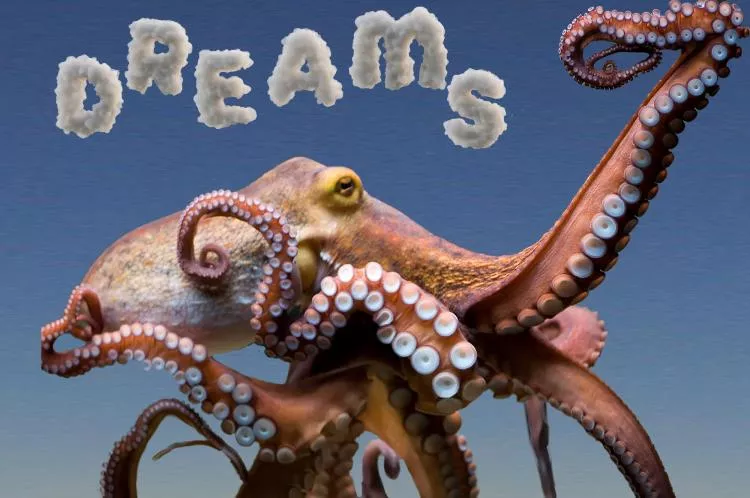Do octopuses dream?
Shifts in colour, behaviour and movement are evidence of a sleep cycle -- with the octopus switching between active and quiet sleep just as humans switch between deep sleep and REM sleep --suggesting that octopuses may experience something akin to a dream.
Scientists used to think that only mammals and birds experienced different sleep states. More recent research, however, has revealed some reptiles and cuttlefish -- another cephalopod and relative of the octopus -- show non-REM and REM-like sleep.
A new study has found that the octopus has ‘quiet’ and ‘active sleep’, with different episode duration and periodicity, and experiences active sleep after a long episode of quiet sleep.
States differ on arousal thresholds, skin colour and texture, and eye and mantle movement. Octopuses usually change their skin colour for camouflage or for communication but during sleep, environmental factors no longer trigger these patterns.
How do we know?
Octopuses have a very different brain structure to humans, so how can we know that they dream, or even sleep?
Electrophysiological recordings in mammals show distinct spectral profiles that comprise two major alternating sleep states, one quiet and another active. Much less is known about neurobiological rhythms in invertebrates because electrophysiological recordings remain very challenging in these animals. Despite these limitations, the study of invertebrate sleep has advanced using behavioural criteria originally developed to investigate mammalian sleep.
Among cephalopods, the common octopus (Octopus vulgaris) meets all the criteria to define sleep
The octopuses were very sensitive to very weak stimuli when they were alert, but in both sleep states they needed a strong visual or tactile stimulus to evoke a behavioural response, the scientists said.
"It is not possible to affirm that octopuses dream because they cannot tell us that, but our results suggest that during 'Active sleep' the octopus experiences a state analogous to REM sleep, which is the state during which humans dream the most," wrote the study authors Sidarta Ribeiro and Sylvia Medeiros in an email to CNN.





























